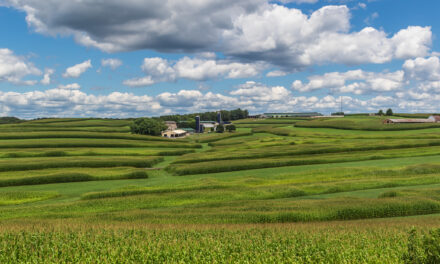House Agriculture Committee Chairman Glenn Thompson calls for a solution as issues like avian flu and inflation worsen for farmers.
As it stands now, the farm bill has expired and a new version from Congress is currently running two years behind. The farm bill lasts five years, then needs to be reauthorized by Congress and the package contains $1.5 trillion in funds dedicated to agriculture. The provisions in the bill have been extended through annual appropriations bills, but a new legislative solution is yet to be settled.
Chairman Thompson said, “My projections are, we need to get this farm bill done in the first part of this year.” Chairman Thompson and Democrats are pointing the finger at each other following two years of painstaking delay on the bill.
“Because they were convinced at that time that Joe Biden was going to win reelection and maybe the Democrats were going to take the House. Obviously, none of that happened,” Thompson said.
Democrats blame Republicans trying to limit the SNAP food assistance program, which has reported controversial waste, fraud, and abuse among participants.
The farm bill will have a major impact on not only farmers in Pennsylvania, but everyone in the Commonwealth. Thompson said, “This will be a farm bill that will serve those who produce food. Those who process. And quite frankly, those who consume. Oh, that’s everybody.”
Thompson expressed concern over tariffs in a recent interview. “I’m always concerned with retaliatory tariffs because it seems like agriculture is where these get placed on,” he said.
The update on Chairman Thompson’s plans for the Farm Bill comes at a critical time for Pennsylvania, as the state has seen more than 2 million birds affected by avian flu this year.
Grant Gulibon from the Pennsylvania Farm Bureau said in a recent interview, “We’re really in probably the worst spot that we’ve been, I would say, since the initial outbreak back in April of 2022 here.”
The virus is deadly to domestic poultry and can wipe out entire flocks within days, creating a significant problem that is hurting the industry, the economy, and the livelihood of Pennsylvania farmers.
Gulibon said, “At the same time, you’ve got farmers that are dealing still with the effects of inflation, the effects of inflation on feed for chickens, all the biosecurity stuff that we’re putting in place that costs additional money. So, fuel costs, transportation costs, it’s really kind of a perfect storm of prices.”






